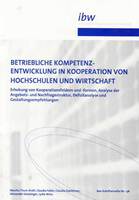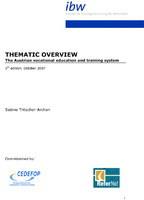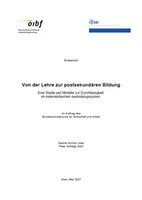Unternehmen sehen die Entwicklung ihrer Humanressourcen durch betriebliche Weiterbildung und Personalentwicklung (PE) zunehmend als zentralen Wettbewerbsfaktor an. Diese international feststellbare Entwicklung wird auch für Österreich durch eine Reihe von Erhebungen belegt (z.B. Kailer u.a. 1995, 2001, Schneeberger/Kastenhuber 1997, Schmid 2001, PEF 2003, Kai-ler/Stockinger 2007).
Diese Entwicklung wird auch durch Quantität und Qualität der beim „Knewledge Staatspreis für lebensbegleitendes Lernen im beruflichen Kontext“ des BMWA eingereichten betrieblichen Personalentwicklungskonzep-tes untermauert (Thum-Kraft 2004).
Companies increasingly see the development of their human resources through corporate further education and personnel development (PD) as a central factor for competitiveness. This development can be observed internationally (see for example the CEDEFOP study from Descy/Tessaring 2002, Brandsma/Kessler/Münch 1996, EIU/IBM 1996, DTI/DFU/FEDA or J., Nyhan 2000) and has also been documented in Austria through a series of surveys (e.g. Kailer et. al. 1995, 2001, Schneeberger/Kastenhuber 1997, Schmid 2001, PEF 2003, Kailer/Stockinger 2007).
This development is also supported in terms of quantity and quality by the corporate personnel development concept submitted by the Federal Ministry of Economics and Labor of the Republic of Austria (BMWA) for the “Knewledge Staatspreis für lebensbegleitendes Lernen im beruflichen Kontext” (Knewledge National Award for Lifelong Learning in a Vocational Context) (Thum-Kraft 2004).


